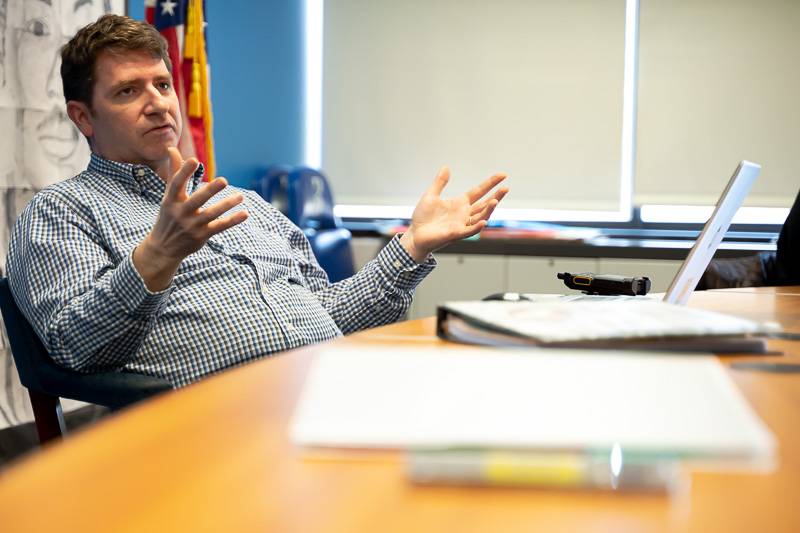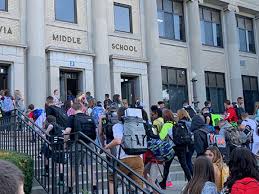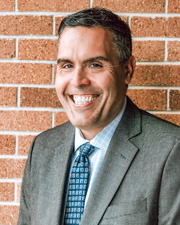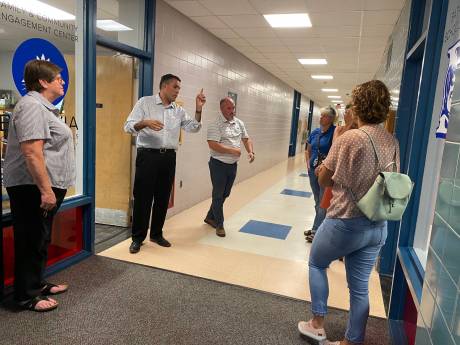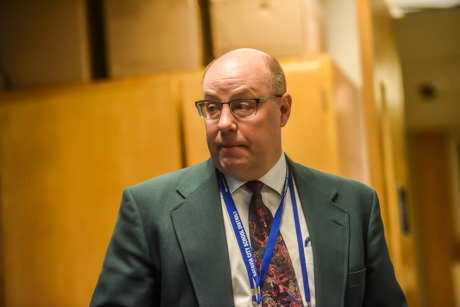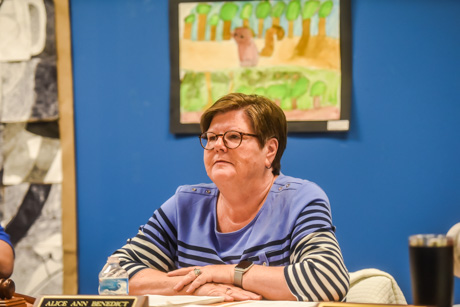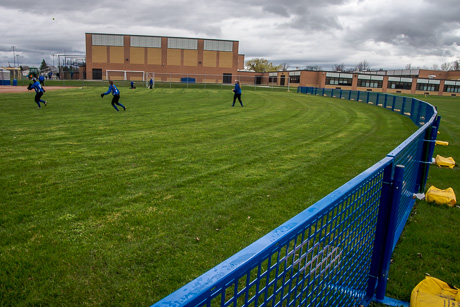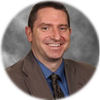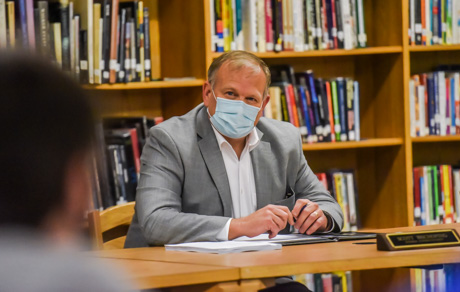A Day in the Life of a Teacher
by Gretchen DiFante, mother of five and school board member
Background
As a parent who has 13 years separating the birth of my first child from my fifth, I have witnessed, firsthand, the dramatic changes in our our schools and in the job of our teachers. When I spent time in my eldest child’s first grade classroom 15 years ago, the biggest social problems were around kids not having coats or socks in the winter. Today, we see more and more parents who are truly expecting our schools to raise their kids. As a parent myself, I admit that my expectations of a teacher’s role in the life of my children has remained the same, while I falter more in the areas of follow up for everything from sending in snacks and permission slips to monitoring television and homework like I should. In other words, I AM doing a worse job in detail management as a parent, but I am expecting my kids’ teachers to increasingly make up any slack for me.
As a society, we send teachers students who have little to no respect for authority at home or anywhere, and we expect our teachers to integrate these kids successfully into the classroom with no impact on their ability to teach. It seems we expect EVERYONE to matriculate into the same classrooms together and expect the teachers to manage all of the issues presented to them on a daily basis. In addition, we expect teachers to completely change the way they teach to meet common core standards, and we are increasing teacher accountability measures based on, in my opinion, a flawed system (APPR).
Rather than try to describe my perspective on the classroom and why I think teachers need our collective support now more than ever, I have prepared a story. I refer to the story as “fictional” as it is not based on the words of any one teacher in Batavia nor anywhere else; rather it is written by me -- one parent who also happens to be a school board member. The story reflects my observations in classrooms in recent years (my five children have attended every school in Batavia including Robert Morris, Jackson, John Kennedy, St. Joseph’s, Batavia Middle School, Batavia High School and Notre Dame High School -- so I mean every school). The story focuses on the challenges of a teacher in an elementary classroom in 2013. I write the story from the elementary level, because what happens in the lives of the youngest of our students impacts those same students as they move through school and on into society. Whether teacher, parent, grandparent or friends of schools, I welcome your feedback and observations.
A Day in the Life of a Teacher
I am an elementary school teacher in a rural district in Western New York. I became a teacher, because I wanted to do my part to contribute to society in the most powerful way I could imagine. Our children ARE our future. It is absolutely important that they read, write and perform mathematics. However, it is equally important that they gain the abilities to listen and show respect to others, to think about actions before they act, to appropriately contribute to social groups and to develop healthy value systems to which they stay grounded and use to guide positive decision-making for the rest of their lives. These are my goals, and when I went into teaching 21 years ago, it was fun to see my vision for each student come alive in the course of a single school year.
It is much harder to see that vision realized today, and it is certainly not as much fun. Don’t get me wrong, I love my job -- and on most days I love my students; but the job of teaching has completely changed over the past two decades -- and particularly in the last five years. I stay awake many more nights to strategize how I can have an impact on a single kid when my students are the product of a society that has seen the family unit torn apart. My kids‘ parents are overworked and over-scheduled, and in many cases they are struggling to make ends meet. My students are spending three to five hours a day in front of phone, video, television and computer screens and very little time interacting socially. I constantly wonder if I’m doing all I can to make a difference. I network with other teachers, take advantage of personal and career development opportunities and devour the latest research in my field, hoping to improve my teaching and my impact. Here is an introduction to my class:
I have 21 active students - half of them qualify for free or reduced meals, and six of them have individualized education programs or IEPs. Two of my students with IEPs have significant behavioral issues that require a great deal of my attention. In addition, I have another student who, I believe, would greatly benefit from an IEP as I believe he has both emotional disorders and cognitive challenges; however, his parents are adamantly against testing of any kind. This breaks my heart, because I know this child would benefit from his parent’s acknowledgment of his barriers to learning and growth. Acknowledgement would allow me to work with our counselor and the parents to help this student in simple, yet powerful ways. I have two students with food allergies and one student who, due to frequent illness, has missed 15 days of school so far this year. I have two students I have placed in every accelerated pull out program available in an attempt to keep them challenged, as it is clear to me that they are broadly gifted academically. I also have three students who display moderate and specific talent for mathematics, and I want to nurture that in all three of them. In fact, by the third week of school, I had identified talents in all of my 21 students that I wanted to nurture throughout the school year.
Now that you know my class, here is a snapshot from our day together:
It is a late Tuesday morning, and it’s time for desk work. Today our desk work relates to President’s Day. We have been learning about government and the role of the executive branch, and I am excited to see the connections many of my students are making to the history we have learned and to the way government operates today. We have a packet that I will review with the group, and then the students will complete the packets individually. Snack time occurs during desk work, and each student who has a snack is eating at their desk. Three students forgot their snack, so I dig in my desk to find my stash of saltine crackers. The students need a healthy snack at this time of day, and parents are asked to supply one daily. My students are eating their usual combination of full sugar “fruit” snacks, cookies, muffins and crackers. As I pull the slides up to review the assignment on our SmartBoard, Tommy and Seth begin an altercation around which one is using the other one’s pencil. Laura is complaining that Ethan is rocking back in his chair and making her desk shake. Casey cries out that Melanie has brought peanut butter crackers -- I must intervene right away as one of my students has a severe peanut allergy. I remove the snack and dig back into my cracker stash. I make a mental note to send that parent a note, and I redirect each student back to the packet review. Sarah raises her hand and begins asking a question. As Sarah begins to speak, Joel imitates Sarah’s broken and unclear speech. Joel has made great strides this year in being sensitive to the feelings of others (one of my personal goals for him), and I am surprised at his choice. I need to put a stop to his behavior and at the same time draw attention away from Sarah whose difficulties with speech make it challenging for her in any social situation. Sarah really should be showing much more progress, but I understand from the speech therapist that Sarah’s guardian has been unable to do the daily speech exercises necessary for Sarah’s improvement. Therefore, Sarah is limited to the therapy the school can provide, and I’m beginning to worry if she will ever make progress. I finally finish the packet review, and as students begin independent work, I run over to redirect Ellie back to her separate spot where, according to her IEP, she needs to be to complete all individual work. Ellie excels at individual work when she can be free from distraction. As I’m working with Ellie, the conflict between Seth and Tommy escalates; and on my way to handle it, I am met by two students who have individual questions -- I will have to wait to help them, because Seth is clearly on his way to having one of his explosive episodes. Through trial and error and great advice from our school counselor, I have learned how to intervene to help control Seth’s explosions. However, if I intervene even a moment too late, the explosion can not be tamed. I am too late -- Seth is out of control, and I will have to call someone to help me. I hate to have to escalate this up the chain of command again, because I don’t want to be perceived as being unable to control my classroom (a real concern for all the teachers in our district and teachers everywhere). But, I just couldn’t get to Seth in time. Thank goodness -- our classroom aide has just arrived (We get her for only 60 minutes today, because we have had to cut back so much in aide hours). Since the aide is here, I can bring Seth to the principal’s office myself.
When I return to the classroom, Giselle is telling our aide that she doesn’t have to sit in her seat and do her work, because she can’t tell her what to do -- she isn’t the teacher. “Oh, my little Giselle.” She has no more respect for me as an authority figure than she does the aide. At times, I have worked successfully with Giselle to help her understand the importance of respecting authority, but it is difficult. She has so much potential -- but it is obvious when I observe her with her father and grandmother, that respect for authority is not something that is encouraged at home. Whoops -- two students have made their way over to Ellie’s desk, and I need to redirect. First I stop by the desks of the two students who had questions -- one figured the answer out on his own and the other obviously lost interest and hasn’t worked on the assignment at all. She is one of my gifted students, and if she doesn’t feel challenged, she simply gives up and usually starts “drama.” I have a folder of extra assignments to give her, and I go retrieve an assignment from that folder -- her eyes light up, and she is focused and ready to work; but alas, independent work time is over, and it’s time for the students to line up for art. I estimate that less than half the class completed the independent work assignment. Its completion will be given as homework, and based on patterns this year, I expect less than half of those students to complete the homework.
I will have a half hour to prepare for the math block; however I have four students who have not turned in permission slips to ride the bus to the field trip next week, and I don’t want to see them left out. Two are students who are isolated naturally, and my individual goals for them include helping them to develop healthy self esteem. It must feel terrible to be the only one who doesn’t turn in a permission slip and has to miss a field trip. It can’t be good for the self esteem of a student with healthy social interaction -- and certainly not good for one who trends toward isolation. I don’t want to see these kids become easy targets for bullies in the future -- but that is where they are headed. The deadline for permission slips is today, and I really need to track down their parents. I also need to finish up the notes for the individual student learning objectives as part of our state mandated Annual Performance Plan Review or APPR. I am in support of a program that will help demonstrate my quality as a teacher; however I am confused as to how my students’ scores on any test is a complete reflection of the quality of my teaching. How can I be held accountable for the test performance of a student who needs to be separated for work in my busy classroom, and despite my best and continuous efforts is unable to work with the freedom from distraction she needs to be successful? How can I be held accountable for the test performance of a student who, due to continuous behavioral issues, has to spend significant time removed from the teaching environment? How can I be held accountable for the test performance of a student whose own parents refuse to get him the cognitive and emotional help he needs? How can I be held accountable for the test performance of a student like Alec, who although still eligible to remain in school, hasn’t been in attendance enough for me to provide the extra help he needs? I know that’s only four students, but that’s 20 percent of my class. If 20 percent of my students don’t meet performance standards on the state tests, it will be impossible for me to achieve a rating of highly effective on my APPR score. If I don’t achieve the highest rating, will parents want me to teach their kids? I can’t imagine, after all these positive and rewarding years as a teacher, becoming the teacher no parent wants their kid to have! If parents don’t want me to teach their kids, how can I make a difference in these little lives in which I see so much potential? I have to put these thoughts out of my mind and go get in touch with those parents. Like all my colleagues, I have hours of additional paperwork for the mandated APPR and common core standards. When exactly am I supposed to get all this paperwork done? Well I will have some extra time at my son’s baseball game tonight...
